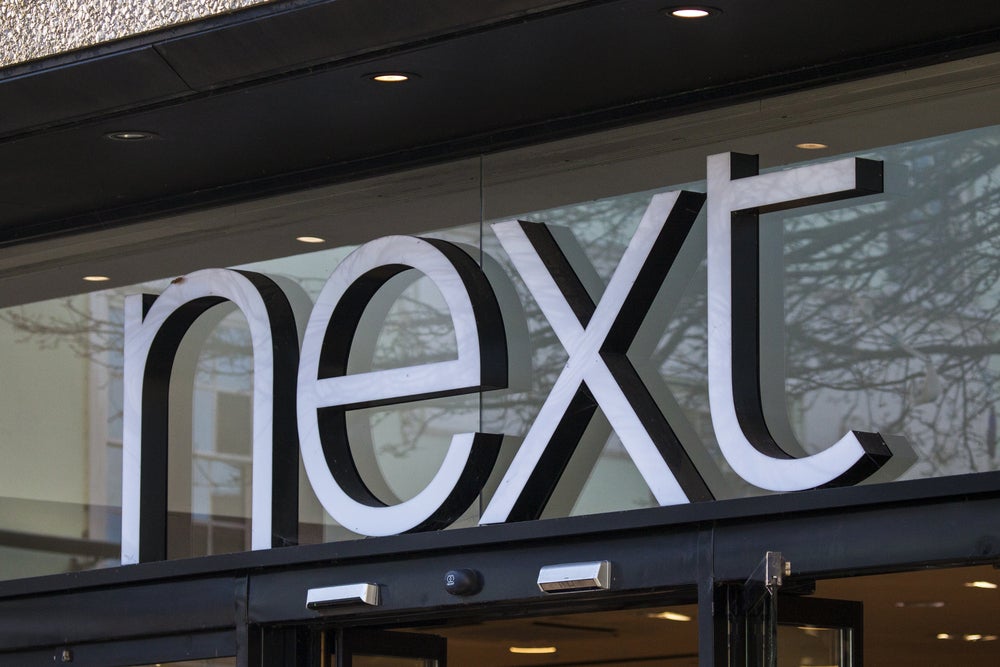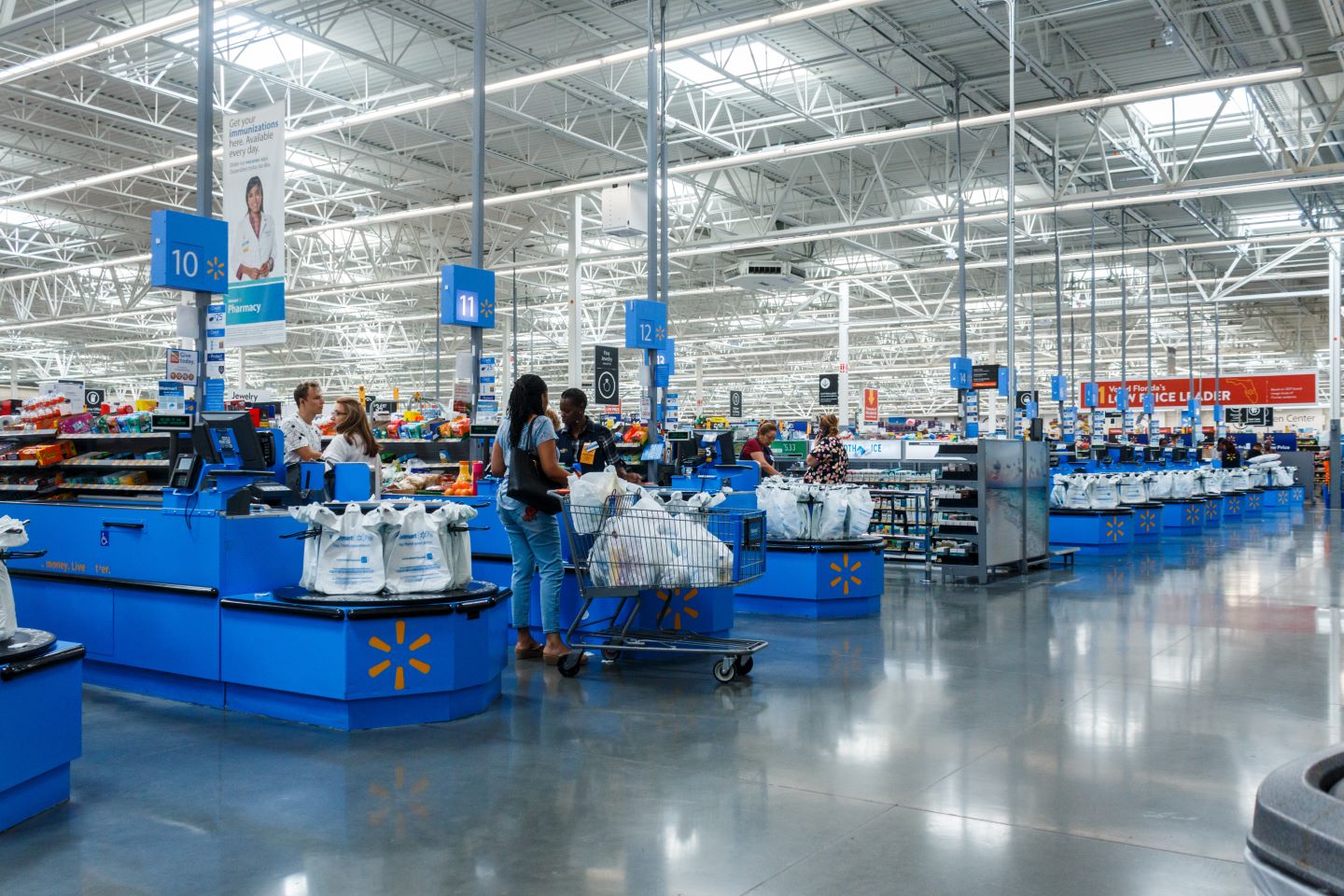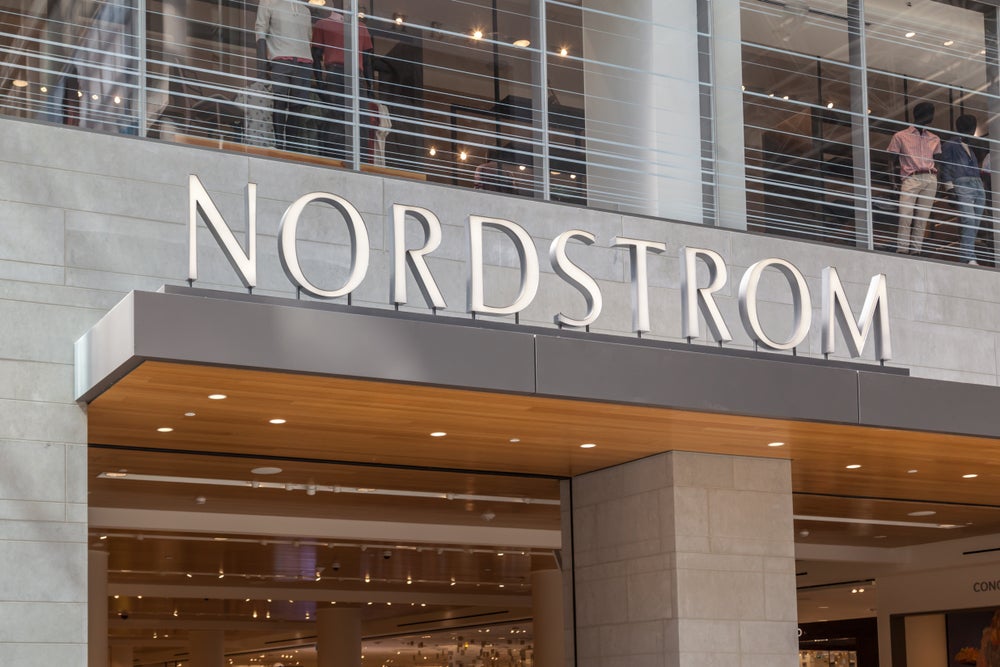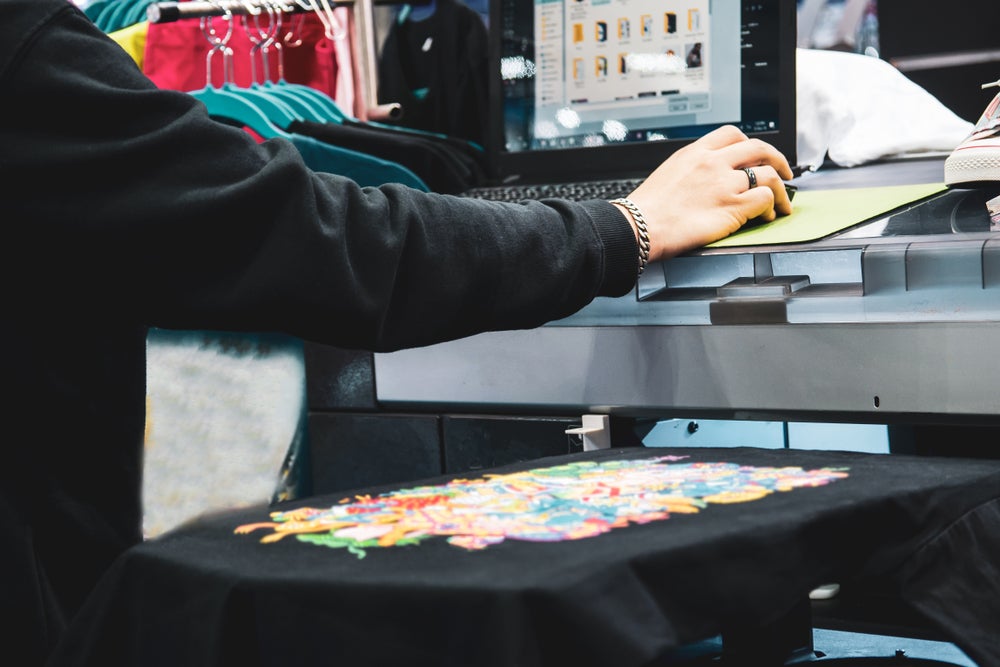
Apparel DECODED
Previous edition: 21 Mar 2024
Share article
Get the full version straight to your inbox.
Exclusive access to our best-in-class data & intelligence
Subscribe now
The greenwashing crackdown and how fashion brands can ensure compliance
As fashion brands and retailers undertake the mammoth task of ensuring all claims abide by UK and EU government rules against greenwashing, Just Style looks at the small print and speaks to an expert to find out how fashion firms can avoid false advertising.

In 2022, a handful of major household fashion names were caught up in allegations of “misleading consumers” over sustainability claims made on their clothing labels, commonly known as the practice of "greenwashing".
Swedish fashion brand H&M and Nordic outdoor brand Norrøna were reprimanded for green claims made in their marketing, with the Norwegian Consumer Agency (Forbrukertilsynet) saying it believed Norrøna was “breaking the law” through its claims, which were based on the Higg Index.
The debacle led to an entire review of the Higg Index with the newly coined Cascale (formerly Sustainable Apparel Coalition) saying it was continuing to explore ways to communicate environmental information to consumers after Forbrukertilsynet indicated claims in general, and based on Higg data, must be sufficiently documented and qualified.
But it’s not the first time fashion brands have been accused of greenwashing after being caught in the crossfire of unclear guidance around green marketing claims.
UK retailers Boohoo, Asda and Asos all said they were cooperating with an investigation to be carried out by the UK competition watchdog into their use of green claims in the summer of 2022, as the government body looked to crackdown on “greenwashing”.
It was part of an effort that started in January of that year where the UK Competition and Markets Authority (CMA) noted an estimated £54bn ($69bn) is spent by consumers on fashion annually and its initial review identified concerns around potentially misleading green claims. These included several companies creating the impression that their products were “sustainable” or better for the environment – for example by making broad claims about the use of recycled materials in new clothing – with little to no information about the basis for those claims or exactly which products they related to.
According to a study carried out by international law firm RPC, a quarter of complaints over greenwashing made to the UK competition watchdog are related to fashion.
In the UK at least, the CMA’s Green Claims Code exists to direct brands and retailers to appropriate marketing claims when it comes to sustainability. But with additional pieces of legislation aimed at validating green claims underway, apparel brands and retailers are struggling to keep up with the demands.
The small print when making green claims in the EU and UK
Compare Ethics, which helps businesses navigate the complex regulatory environment of sustainability, has summarised the rules and regulations around green claims the EU and UK fashion sector is or will in future be subject to.
- UK CMA Green Claims Code – Requires businesses to hold data to substantiate environmental claims made about their products or business practices and takes into account the whole life cycle of the product.
- The Digital Markets Competition and Consumers Bill – Bolsters the CMA’s powers to crackdown on misleading practices including greenwashing, think of it as the enforcement body. This bill is currently being tabled and is likely to receive Royal Assent in spring 2024.
- Anti-Greenwashing from FCA – The rule will apply to all FCA-authorised firms. It states that firms should 'ensure that any reference they make to the sustainability characteristics of their financial products and services are consistent with the sustainability characteristics of the product or service and are fair, clear and not misleading. Expected to come into effect in 2024.
- Empowering Consumers in the Green Transition Directive – Aims to ban greenwashing and misleading product information, updating the list of product characteristics which can be the subject of misleading actions, including "environmental or social characteristics" and "circularity aspects, such as durability, reparability or recyclability". All claims must have clear, objective and publicly available and verifiable commitments set out in a detailed and realistic implementation plan, that is regularly verified by an independent third-party expert, with findings made available to consumers. The specifics of enforcement, including fines, are determined by how each EU member state decides to transpose the directive into national law. The directive does, however, empower national authorities to regulate market practices more effectively to protect consumers. Expected to be applied in the latter half of 2026.
- Green Claims Directive - Aims to protect consumers and genuinely sustainable companies from false environmental claims by setting minimum requirements for the substantiation and communication of such claims – for example: Companies will need to substantiate environmental claims using life cycle assessment, communicate them accurately, and have them externally verified. Common phrases such as ‘net zero’, ‘carbon neutral’ and ‘eco-friendly’ would be prohibited in advertisements, in social media posts or on packaging unless they were sufficiently substantiated and verified. Companies could be fined up to 4% of turnover for non-compliance under this set of rules. Proposed by the Commission in 2023 and passed by the EU Parliament in February 2024.
How fashion firms can avoid the greenwashing trap
For decades, many fashion brands and retailers felt safe in the knowledge that simply affiliating themselves with major organisations with a sizeable interest in sustainable production or that carried sustainable certifications was enough to make a green claim.
But the recent controversy with the Higg Index, proves that it is no longer enough to make blind claims, Abbie Morris, CEO of Compare Ethics, explains, noting that access to sound data has never been more important than it is today when so many in the fashion space are facing accusations of greenwashing.
Her top tips to avoid getting tripped up by green claims regulations are:
- Invest in data collection and understand how you get disclosures out the door at scale, effortlessly: While the legislation is new, it is moving at pace and anyone who doesn’t move on it now will be in a tricky situation in the next six to 12 months.
- Understand the importance of compliance: It’s OK if until now your business hasn’t spent any time on this but going forward that becomes more tricky. The key is getting to grips with the right cross-functional teams typically brand, marketing, legal, and sustainability teams and ensuring executives are aligned on the level of risk appetite in this area. Once this is established it will dictate your response to the business.
“What we’re seeing with fashion in particular is it is moving from a highly unregulated industry to a regulated one. Previously much of it was self-regulated and due diligence was minimal. That together with a highly complex supply chain has meant brands have been caught out. Moving forward, operating that sort of model is risky, particularly over the next 36 months,” says Morris, adding that for the most part, brands are welcoming regulation like the CMA Green Claims Code, because it creates a “level playing field in communicating green credentials.”
“But the challenge is understanding and interpreting the do’s and don’ts into 'what data do we need to be backing up specific claims?'”
Regardless, she says, data is fundamental to any fashion brand looking to avoid falling foul to greenwashing and facing fines and reputational damage.
“A lot of fashion businesses at this point should know that as part of sustainability compliance in general, but specifically for greenwashing, without data collection you don’t really have any claims to make.”
The greenwashing gap in the fashion sector
While some businesses are light years ahead of investment in this space to ensure they are not tripped up by the incoming regulation, others are taking a more relaxed approach with only a handful within the business urging action.
“Then there is a bunch that is blatantly ignoring the rules and pressing ahead waiting until someone comes in and starts slapping them on the wrist. But in terms of profiles, these are the core buckets we are seeing at the moment,” says Morris.
“There’s still a really big educational piece for leadership to understand what this risk profile means to their business,” she adds.
“The inflection point”
As has been the case with approaches to worker safety in apparel factories, modern slavery, better purchasing practices and so on, the endless list of organisations to affiliate with and duplication of standards can lead to audit fatigue. Are we headed the same way with green claims requirements?
Morris says it’s possible, in the near term at least. But that’s not to rule out the potential for standardisation in the future.
“I think if we specifically look at the European Green Deal, a lot of it intends to create alignment. Does it mean that in the short term there are things in silos because the exact requirements have not been defined? For sure. But I also think there's huge potential for standardisation in the coming years, particularly aligning Corporate Sustainability Reporting Directive (CSRD) with things like the Green Claims Code, and the Empowering Consumers Directive.
“Where it gets tricky is when you start looking at globally different positions, depending on differently regulated markets. So, Europe, by far is obviously setting the pace. We have certain flashpoints politically; for example, the US has recently retreated on some Scope 3 measures.
However, at the Global Fashion Agenda in Boston, the head of global issues and innovation at the European Union Delegation to the United States, Javier Sancho said the EU stands ready to help the US develop its green fashion legislation, adding the “fashion sector should tackle issues in a transatlantic manner and the “EU- US relationship is of the utmost importance”.
Regardless Morris says to some degree it doesn’t really matter what is happening in other markets if one is pressing ahead.
"I do think at some point there will be standardisation. We’re just going through a bit of an inflection point around what it means to go from an unregulated market to a regulated market on this.”
Latest news

Next boasts ‘no product price inflation' as FY23 sales, profit surge
British clothing and homewares retailer Next maintained its profit forecast for 2024/25 after FY profit increased 5% and it anticipates a returned consumer confidence as wages rise faster than inflation.

Walmart CEO urges supply chain flexibility as NRF eyes $5.28trn retail sales in 2024
Harnessing data and technology while remaining flexible will be key to navigating inevitable supply chain disruption in the retail sector going forward, the CEO of Walmart said at the NRF State of Retail & Consumer 2024 event.

Shein's US IPO listing unlikely - will London prove different?
As US regulatory scrutiny and ethical concerns put a spanner in Shein's IPO plans, Just Style investigates whether the fast fashion ecommerce giant will be able to succeed in London instead.

Nigeria's apparel, footwear sectors struggle to adapt to economic shifts
Nigeria’s apparel and footwear industries are facing a complex economic landscape, with its manufacturing sector finding it hard to tap either the overseas market or its growing domestic market. Samuel Okocha reports.

Nordstrom family ‘weighs privatisation' amid investor pressure
The founding family behind Nordstrom Inc. is reportedly seeking to take the US department store operator private, a move that comes as no surprise to an industry analyst who believes the store has lost its “retail mojo” after facing mounting pressure from investors.

Alternative materials suppliers dominate 2024 fashion innovators list
Several names in the world of alternative fibres have been announced among Fashion For Good’s 2024 innovators programme including Nanollose, Balena and Samsara Eco.

Kornit Digital debuts sustainable digital apparel production solutions
Digital printing company Kornit Digital has unveiled its new direct-to-garment and direct-to-film apparel production offerings for brands, retailers, sportswear manufacturers and screen printers at the FESPA Global Print Expo 2024 in Amsterdam.

Caleres FY23 sales down, eyes growth potential in 2024
US footwear company Caleres has announced its net sales were down 5.1% in FY23 to $2.82bn, however its CEO remains optimistic that it is positioned "exceptionally well" for growth in 2024 and beyond.
In our previous edition

Apparel Decoded
What the apparel sector can learn from Mango's new strategy
20 Mar 2024

Apparel Decoded
Material tech lecturer: Is leather eco-friendly or is apparel covering its hide?
19 Mar 2024

Apparel Decoded
How the apparel sector can overcome high interest rates, gain market share
18 Mar 2024
Newsletters in other sectors
Aerospace, Defence & Security
Banking & Payments
Medical Devices
Travel and Tourism
Search companies, themes, reports, as well as actionable data & insights spanning 22 global industries
Access more premium companies when you subscribe to Explorer


